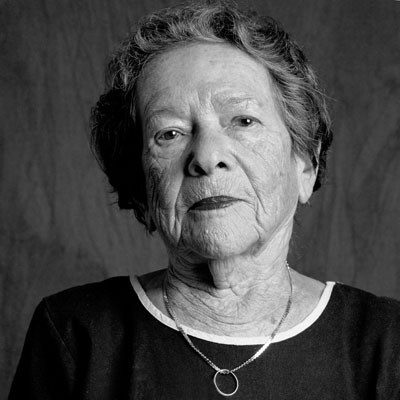During the Warsaw Uprising in the spring of 1943, residents of the Warsaw ghetto resisted its liquidation for four months. Young Jewish men and women, poorly armed and facing a German force three times as large, made a desperate and valiant attempt to fight back.
When the Germans ordered Henrietta’s parents into the Lodz ghetto, they sent their children to Warsaw to live with relatives. Henrietta’s fiance, Stephen Diament left his family to join her. They were married soon after, then forced into the Warsaw ghetto along with Henrietta’s brother. Their father died of starvation in the Lodz ghetto; their mother perished in Auschwitz in 1944. Henrietta states, “What I remember most about living in the Warsaw ghetto was seeing children dead in the streets. I also remember being hungry. I was hungry all the time for years.” But she never lost faith: “If I lost hope, I lost everything.”
She and her husband were deported to Majdanek concentration camp and separated. She recalls going to Radom ghetto and says, “Then I was sent to Auschwitz, where I lived for over a month. One day we were stripped of our clothing and walked through the streets.” In November 1944 the camp was evacuated. “We marched all the way from Poland to Bergen- Belsen,” she says. “My group was young and most of us made it.” Liberation came in April 1945. Three weeks after Henrietta reunited with her sister in Belgium, her husband, Stefan, showed up at her door.

